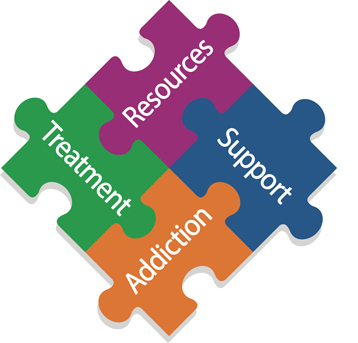Choosing an top-rated addiction recovery center ensures access to high-quality care.
Choosing an top-rated addiction recovery center ensures access to high-quality care.
Blog Article
Key Kind of Addiction Therapy: Browsing Alcoholism Recovery Through Evidence-Based Practices
In the world of alcohol addiction recuperation, the combination of Cognitive-Behavioral Treatments (CBT) and Medication-Assisted Treatment (FLOOR COVERING) marks an essential stride in the direction of effectiveness and patient-centered care. When these evidence-based practices are supplemented with all natural methods, such as mindfulness and nutritional support, they develop a robust structure for therapy.

Understanding Cognitive-Behavioral Treatments in Alcoholism Recovery
As alcohol addiction recovery progresses, cognitive-behavioral treatments (CBT) have arised as a foundation in effective therapy approaches. CBT operates on the concept that maladaptive habits, such as extreme alcohol consumption, are driven by dysfunctional ideas and ideas. Therapy concentrates on recognizing these negative patterns and training people how to test and replace them with more useful reasoning. This treatment is not only about managing actions yet likewise reshaping cognitive procedures, which can bring about sustained sobriety. Sessions commonly entail useful abilities training, such as dealing techniques for handling food cravings and stress and anxiety administration methods. The versatile nature of CBT permits it to be tailored to the one-of-a-kind needs of each person, boosting its efficiency in the world of alcohol recovery.

The Role of Medication-Assisted Therapy in Managing Withdrawal and Cravings
Medication-assisted therapy (MAT) plays a critical function in the monitoring of withdrawal symptoms and food cravings in individuals recuperating from alcohol dependency. Cognitive Behavioral Therapy (CBT). Such integration supports the retention in therapy programs and adds significantly to preventing regression, noting Floor covering as a cornerstone of efficient alcohol dependency therapy.

Integrating Alternative Approaches With Typical Treatments for Comprehensive Care
While medication-assisted therapy provides a fundamental strategy alcohol recovery programs to alcohol healing, incorporating all natural methods with traditional treatments supplies a more detailed care model. This synthesis makes it possible for the therapy of the whole person, dealing with not just the physical aspects of dependency yet also the psychological, emotional, and spiritual dimensions. Strategies such free outpatient drug rehab as mindfulness, yoga, and acupuncture enhance cognitive-behavioral therapy (CBT) and group sessions, supporting stress decrease and psychological law. Nutrition and workout programs better enhance physical health and wellness and durability. By integrating these varied strategies, therapy programs can customize treatments to specific demands, advertising an extra lasting recovery. This integrated strategy underscores the relevance of a diverse strategy in the effective therapy of alcoholism.
Final Thought
To conclude, effective alcoholism recovery leverages a mix of evidence-based techniques. Cognitive-Behavioral Treatments reframe adverse thinking, while Medication-Assisted Treatment deals with the physical challenges of withdrawal and cravings. Incorporating alternative useful site methods, such as mindfulness and correct nutrition, with conventional therapies ensures an extensive care approach. Customized to private needs and sustained gradually, these techniques jointly boost the possibility of sustained sobriety and total well-being in recuperating individuals. telehealth addiction treatment.
Report this page